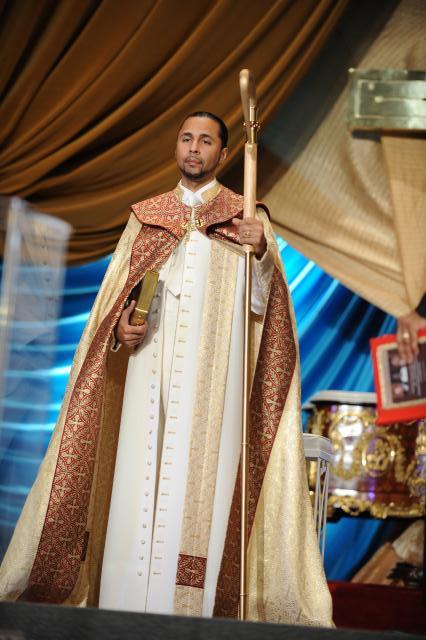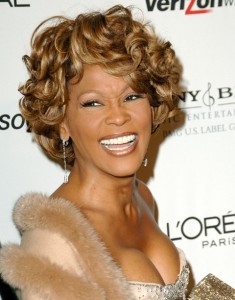
Rev. Jack Bronnar
A 2010 article in the Los Angeles Times; “Harlem’s New Political Elite”, outlined the changes that have defined a new generation of leadership in North Manhattan. The days of the “Gang Of Four”; David Dinkins, Basil Patterson, Charles Rangel and our own Inner-City Founder the late Percy Sutton, were reminders of the political machine which powered African American influence in our region for the past half century.
In contrast, today’s Black leadership appears less interested in any form of politics that include “running for office” even though they may consult a campaign for someone who is seeking an elected office. These young African Americans are highly educated and may be found working in the arts and other non-profit sectors. Perhaps they’re in finance, banking, real estate, Ministry, or own a small franchise. While their political aspirations may be dimmed for a variety of reasons, they’re still motivated to make a difference in today’s Greater New York City and beyond.
One such “new” leader is Reverend Jack Bomar. The Tennessee native came from Pastoral study and work in Chicago to Washington Heights as the first Pastor to replace the legendary Minister Reverend Frederick Eikerenkoetter II, known to the World as “Reverend Ike”, founder of the United Palace Cathedral.
Rev. Ike’s 44-year run at United Palace until a few years before his death in July 2009 is the stuff of legend. He was controversial, considered among the first Preachers with a message of “prosperity”. Rev Ike also became among the first African American Pastors to discover the power of radio/TV syndication, mail order and eventually even the internet. We’ll talk more about Reverend Ike later.
My talk with Reverend Jack Bomar comes as he continues to celebrate his “official” installation as Pastor of United Palace Cathedral after arriving at the Church almost 2 years ago. Reverend Bomar caught my attention for being a Pastor coming into a huge and heritage congregation with a message directed at the entire community surrounding it’s block long campus. Reverend Bomar is young, a graduate of numerous schools including his recent Masters of Divinity at Chicago Theological Seminary, and is currently working on his doctorate. Among numerous affiliations, he was inducted into Morehouse College’s Rev. Martin Luther King Jr. Board of Preachers in 2008.
(Q) Reverend Bomar, how does one replace such a historic figure while working to address the current needs of United Palace and it’s members. Certainly this is no small feat?
(A)Rev Bomar: First, I can assure you that the legacy of Reverend Ike lives on. Our goal is to build a bridge between the Church and our surrounding community while working to grow our membership. There are many challenges especially given our Church went for some time without a direct Pastor. This left the congregation in need of lots of love and attention. Among our goals now are to continue Reverend Ike’s mission of building both Church and Community. We have a calling to engage our youth, their parents, our seniors and local business. We have an entire block in Washington Heights and there’s a lot here that must be addressed. I am really excited about the relationships I’ve been able to work to establish with the local community to date.
(Q) What steps have been taken recently to build that bridge?
(A) One of our initiatives is a monthly “neighborhood” fellowship to engage both residents and local business owners to work together to bring positive change. This is a heritage community. Unlike other areas in the region, many of our Washington Heights residents have lived here 30, even 40 years. I found it amazing that many didn’t even know our Church existed. Some thought our Church was a theater, the original use of our property. It’s a Blessing to see more of our neighbors knowing who we are. And don’t forget, a large number of our residents are Dominican and some speak little or no English. These are lessons I had to understand in order to better serve the needs of both our congregation and surrounding neighborhoods.
(Q) I’ve noticed you’ve written quite a bit about the role of today’s Church.
(A) As always we must be a beacon of hope, light and encouragement. We must share the news that God loves God’s children. I teach and preach a message of love. Coming from social justice organizations in Chicago, I realized that the Black Church used to be a true “anchor” and many Churches have failed at that in recent years. Social issues are rooted in the teachings of Jesus, which calls for us to feed the hungry, clothe the naked and set captives free. Unfortunately we’ve focused on larger facilities and larger congregations. While I’m not knocking this, the Church must be an anchor partnering with people and other institutions of faith as well. For us, whether it’s rent regulation or immigration; we must find dialogue, hope and concern within our own house.
Locally in Washington Heights we’re currently dealing with a rash of school closings. We’re seeing more kids on the streets in an area with an already super high illiteracy rate. United Palace recently upgraded both our tutoring and mentoring programs with a goal of removing barriers to learning. Our numbers have increased greatly in these programs because in addition to fewer area schools we’ve also had some non-profit youth-oriented organizations close due to lack of funding. This means we’ve also added additional programs for students including music, karate, theatrical arts and language classes. We’re seeing increased grades from the kids we’re working with and that’s really something I’m very excited about.
Another area I’m passionate on is rent regulation. We have seniors being forced out of housing here. As I mentioned, we have a lot of long-term residents including many who are 1st generation Americans directly from the Dominican Republic. I understand the talk of gentrification but the Church must do more to protect our residents in these heritage communities. We’ve recently started a seniors program called our “Golden Youth Ministry”. Seniors don’t want to be classified as “old”. We feature guest speakers for our “Golden Youth”, listen to their concerns and offer assistance on health, diet and more. This is one Ministry our congregation and I look forward to growing. We want to make more services available to our Church and community. It’s great to serve a meal but something else to develop entire programs that benefit more and more people.
(Q) Tell me about your early challenges in becoming Pastor of this Historic Church.
(A) Becoming Pastor of United Palace Cathedral was a delicate approach. I’m currently writing my doctoral thesis looking at the “succession” of a Pastor. Today we have larger, even Mega-Church communities. There has to be a plan in place so a successor can be successful. I’m working on a model for succeeding after a charismatic leader. We’ve seen both success and declines in these type situations in recent years. Having to lose members along with selling facilities and assets are an example of some of the latter. When it comes to Churches, money and power are key issues in conflicts.
Coming into United Palace, Rev Ike’s son Bishop Xavier and the Church Board were instrumental by inviting me to provide leadership early. I enjoyed the benefit of one on one meetings with not just administration, but members. This way I was able to learn from the people of our Church before making decisions and changes. And I’ve worked hard to engage the community as well in my conversations while ultimately seeking to be true to the Voice of God.
(Q) Rev Ike had a message that resonated with many while causing controversy and even angering others. Where does his message stand today?
(A) Today we continue Rev Ike’s message as a life of “wholeness”. For us today this includes spirit, mind and body. It covers everything from your finances to relationships. In light of that, we do teach prosperity. It’s not limited however to currency. We seek a metaphysical approach looking for Spiritual/hidden meaning in Scripture that leads to transformation.
Rev Ike came up during a time, especially in the rural South, when Black people were told mostly what they “could not” have. There seemed to be nothing but roadblocks for our people at every turn. Even those around Rev Ike when he was starting out were struggling. Rev Ike told our people to have what you want to have, be who you want to be; there’s power in you. Don’t let anyone define what you can and can’t have. Look for what God reveals to you. What’s ironic here is many who first criticized Rev Ike later went on to preach the same thing.
It is wonderful Rev Ike was able to raise-up a generation of individuals to believe. And while there’s much work to do, so many great things have happened for our people in his time.
(The United Palace Cathedral remains in the same location it’s occupied since 1969 in a former historic theater/movie palace at 4140 Broadway, Washington Heights. Visit the Church at unitedpalacecathedral.org )


